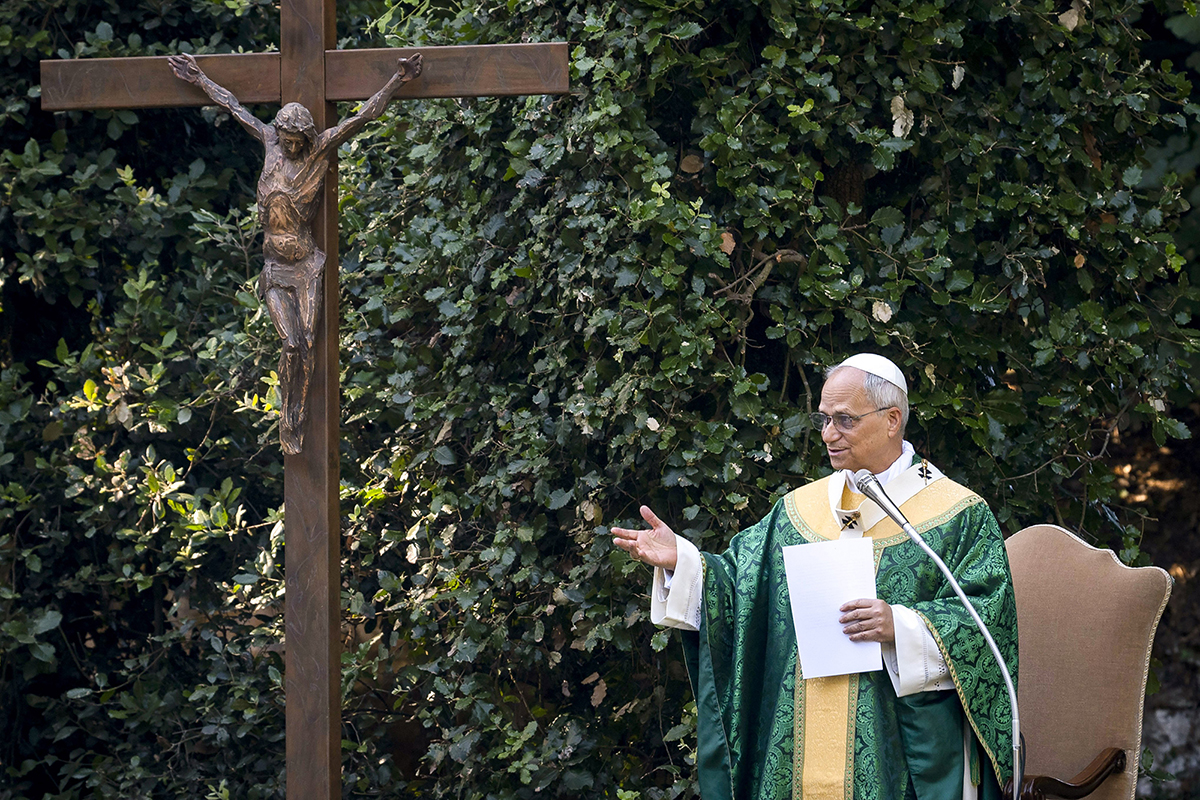DEAR FATHER | Jesus’ resurrection signifies that He began living anew
What is the meaning of the term ‘rising again’?

Notably on Easter Sunday, but also on every Sunday of the year, we celebrate Christ’s resurrection from the dead. As we commemorate this event every Sunday, we know it happened on Easter Sunday morning. He rose once from the dead this morning and did not have to rise multiple times on that or any other morning.
Yet when we use the word again, we usually mean that an action that has happened in the past is occurring again in the present. For example, a priest may say, “I have holy Mass again in an hour.” From this sentence, we can infer the priest has celebrated at least one other Mass that day and has another one coming up in an hour.
This is what we think of when we see this word in the creed; that in some way it is referring to Jesus rising again (multiple times) on the third day.
Our creed, though, was not originally composed in English. It originated from early Greek texts. Most prominent among these early Greek texts are the books of the New Testament.
When St. Paul wrote his First Letter to the Thessalonians and spoke about Christ’s resurrection foreshadowing our own, he wrote, “For since we believe that Jesus died and rose again, even so, through Jesus, God will bring with Him those who have fallen asleep” (1 Thessalonians 4:14, RSV Translation). The Greek verb for the action “to raise up,” which St. Paul uses here, contains the meaning of rising again.
This meaning only gets stronger when these texts are later translated into Latin. The Latin word that would be used to translate this passage from First Thessalonians, “resurrexit,” literally means to rise again. This word is also used in the Nicene Creed in reference to Christ’s resurrection. Such texts are the basis for modern English translations of liturgical texts such as the creed.
With such a long history of usage, and the relatively recent retranslation of the Roman Missal, including the Nicene Creed, we know this is not just a typo. Thus, we are left to wonder: What does this mean?
The word again, while commonly thought of as meaning multiple times, does not exclusively have this meaning. Again can also mean beginning something anew. For example, a child learning how to walk takes a few steps and falls. With some help, they get up and try again.
When we use the word again here, we do not mean that the child gets up multiple times before trying to walk. Rather, it means that they start the task over afresh.
This meaning is meant in this context. Jesus truly lived and truly died. He then truly rose from the dead. He began living again, afresh, anew. Such a reading does not take away from the faith, but only strengthens the Christian message that Jesus lived, died and rose.
This column appeared in a previous edition of the Review.
Father Mayo is pastor of St. Raphael the Archangel Parish in south St. Louis.
Notably on Easter Sunday, but also on every Sunday of the year, we celebrate Christ’s resurrection from the dead. As we commemorate this event every Sunday, we know it happened … DEAR FATHER | Jesus’ resurrection signifies that He began living anew
Subscribe to Read All St. Louis Review Stories
All readers receive 5 stories to read free per month. After that, readers will need to be logged in.
If you are currently receive the St. Louis Review at your home or office, please send your name and address (and subscriber id if you know it) to subscriptions@stlouisreview.com to get your login information.
If you are not currently a subscriber to the St. Louis Review, please contact subscriptions@stlouisreview.com for information on how to subscribe.




